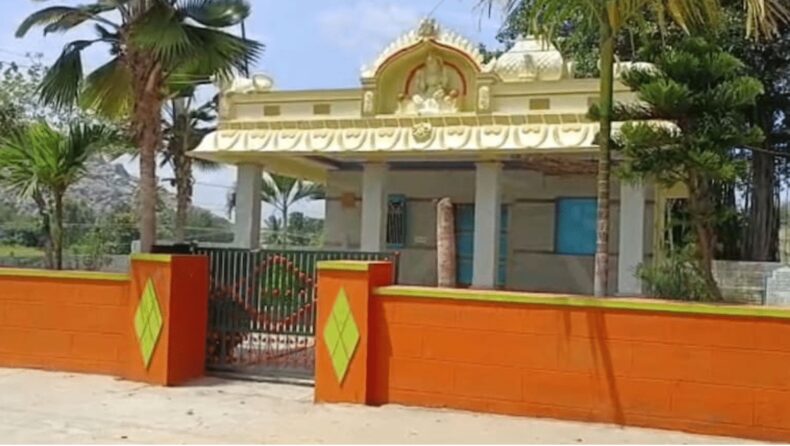A Dalit family has been fined Rs 60,000 after the boy touched a pole attached to the idol of Sidiranna. Is it an offence to touch idols as a Dalit?
A Dalit family has been fined Rs 60,000 after their boy touched the idol of Sidiranna. Sidiranna is a prominent South Indian village deity.
The incident happened in Ullerahalli village in Karnataka’s Kolar district. The villagers were holding the Bhootayamma fair on September 8. Dalits were not allowed to set foot in the deity’s temple.
At that time, a 15-year-old son of Shobamma and Ramesh touched a pole attached to the idol of Sidiranna. Venkateshappa, a villager, noticed it. Then the person was alleged to violate the Code of Conduct of the village.
The next day, the villagers called for the family of the boy to appear before the village elders. The villagers alleged that Dalits must not touch the pole. Furthermore, they said that it is impure and the family should repaint everything.
Narayanaswam, the village elder, fined the family to pay Rs 60,000 by October 1 for re-painting. The villagers also warned the entire family will be thrown out if the family fails to pay Rs 60,000 by October 1.
After Shobamma filed a complaint at Masthi police station, the police arrested eight people. Moreover, the family said they are getting threats from upper-caste people.
Kolar Deputy Commissioner Venkat Raja said, “We have given them the plot to construct a house and have paid them some money. We will provide a job for Shobamma in the social welfare hostel as well. I have also informed the police to arrest the accused at the earliest, and they are at it.”
On September 9, Shobamma was penalised by the villagers. But on Monday the incident came to light. Out of grievance, Shobamma said, “If God does not like us, we will not pray to him. We will offer our prayers to Dr. B. R. Ambedkar.”
As reported by the local residents, the village has nearly 75–80 houses. Almost all the families are from the Vokkaliga community. Around 10 Scheduled Caste families live in the village.
Shobhamma’s house is on the edge of the village. Her son is a student at a school in Tekal village in the 10th standard. The father of the boy, Ramesh, almost all the time remains ill. So, Shobamma is the only breadwinner of the family.
She said, “I take a train every morning at 5.30 am to Bengaluru and work as a housekeeping staff at an apartment in Whitefield and return by 7.30 pm. I get a salary of Rs 13,000 and that is all we have to run the house. The Rs 60,000 penalty came as a shock for us.”
Moreover, she said, “If God does not like our touch or if people want to keep us away, what is the point of us offering prayers? Like any other person, I have spent money, and offered donations to God. Hereafter, I will not do any such thing and will only offer prayers to Dr. B. R. Ambedkar.”
On Monday, a local activist who runs Ambedkar Seva Samithi, Sandesh, came to know about the incident. Then he went to meet the family.
Sandesh said, “I went to their home and helped them file a police complaint. Even after 75 years of independence, if such social evils are still in practice, where will the poor people go?.”
These occurrences are not new in Karnataka. A Dalit family was fined Rs 25,000 by the village authorities in Koppal district last year for a boy’s “offense” of going inside a nearby shrine.
The government, which had taken up the matter, introduced the Vinaya Samarasya Yojana, a campaign for eradicating untouchability via awareness.
Around 240 million Dalits live in India, making up nearly 25% of the country’s total population. They are a socially exploited, oppressed, and downtrodden community.
Since the beginning of time, people from higher castes have oppressed the lower castes, but even now, people from lower castes still deprive people from fundamental chances and torture and exploit people from lower castes. They have a bad social standing.
They frequently lack access to necessities like enough food, clean water, shelter, or clothing. In addition to these, they lack access to appropriate educational resources, which prevents them from obtaining acceptable employment prospects like the rest of the population.













